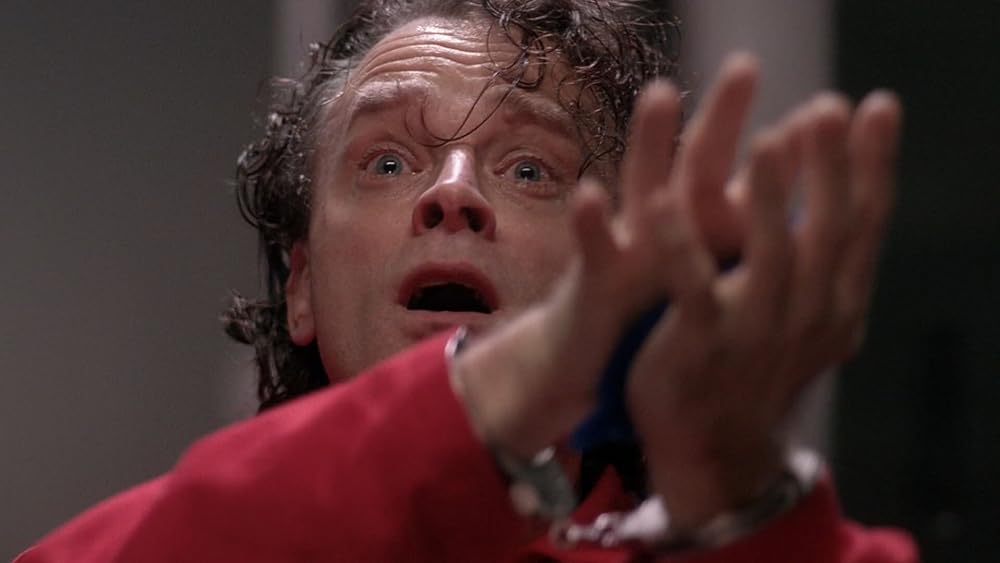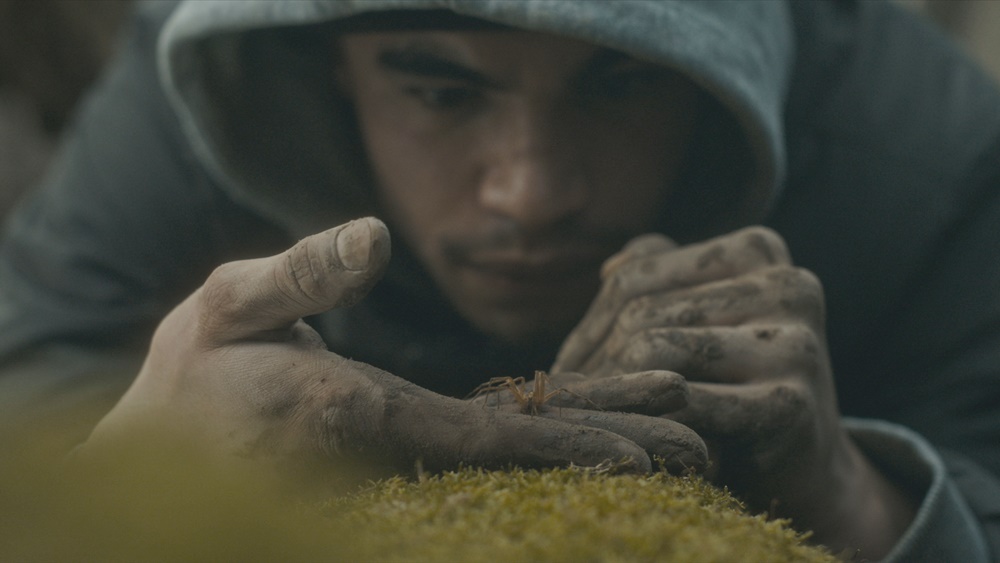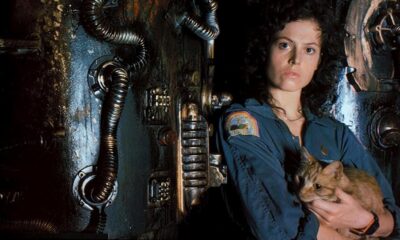News
National Geographic’s ‘MARS’ – Takes Us Beyond Our Wildest Dreams!

Ever look up at the night sky and wonder what else is out there for us? Ever imagine leaving the comfort of our home planet and traveling somewhere so far away, and calling this new place home? Well, all of that has been unraveling to become a reality, and people will soon leave the comfort of their home planet to colonize on the planet Mars. Traveling to Mars has captured our shared imagination and the top minds in science are currently working out the plan, the plan that will change our perception of life and world as we know it. “The most remarkable thing is that we have had the technology to do this for at least thirty years, says Stephen Petranek, Author of How We Will Live On Mars.” Petranek further explains that “Exploration is in our DNA. To survive, we must reach beyond our home planet.”
MARS is set both in the future and in the present day. With fantastic storytelling and the combination of documentary pieces along with scripted drama the series will redefine television and cater to all ages and interests. This series will leave you on the edge of your couch, blown away, wondering, when will I go to Mars? MARS will open up the floodgates for a new generation of minds to become interested in space exploration and launch the careers of many, while an older generation will re-experience vivid dreams of becoming astronauts as they once did as children. This six-part event will tell an exhilarating tale of a fictitious mission to Mars in 2033. The series was filmed earlier this year in Budapest and Morocco. Brought forth for the documentary portion of this series were the globe’s most prominent minds to be interviewed on camera, that had never been conducted, until now. MARS will premiere in the U.S. and internationally in 170 countries and broadcast in 45 languages. Executive Produced by Brian Grazer and Ron Howard, comes a well-massaged series that will explore the essential ingredients to the arrival and the landing on this red planet that will be known as home for some.
Check out the MARS trailers, picture gallery and exclusive interview below.
MARS Trailer #1
MARS Trailer #2

BUDAPEST – Production of the scripted portion of MARS.
(Photo credit: National Geographic Channels/Robert Viglasky)

BUDAPEST – Production of the scripted portion of MARS.
(Photo credit: National Geographic Channels/Robert Viglasky)

Sammi Rotibi as Robert Foucault a Nigerian mechanical engineer and roboticist. The global event series MARS premieres November 14 at 8/9c in the U.S. and internationally Sunday, November 13 on the National Geographic Channel. (Photo credit: National Geographic Channels/Robert Viglasky)

BUDAPEST – Production of the scripted portion of MARS.
(Photo credit: National Geographic Channels/Robert Viglasky)

Ben Cotton as Ben Sawyer the American mission commander and systems engineer on the Daedalus. The global event series MARS premieres November 14 at 8/9c in the U.S. and internationally Sunday, November 13 on the National Geographic Channel. (Photo credit: National Geographic Channels/Robert Viglasky)
Interviews
Actor Ben Cotton – Ben Sawyer
Actor Ben Cotton portrays a mission commander and systems engineer in the new National Geographic mini-series MARS. Sawyer is an experienced astronaut who has flown for both NASA and private space companies. A leader and a dedicated man, the Mars mission has become the focal point of his career. iHorror was graciously given the opportunity to speak to Ben Cotton about his character Ben and his experiences acting in MARS.
iHorror: The structure of this series caught my attention. You have the dram-doc, the drama piece meshed in with the scientific part. How did you come upon this role and what did you find most intriguing?
Ben Cotton: Well, I Came Upon it the way you do most auditions. It got sent to me, and I looked it over. I recorded and audition and sent it in, and that was pretty much it. It was exciting of course because looking over the pages you’ve got National Geographic with Imagine; you’ve got Brian Grazer and Ron Howard. On top of that I had just watched some documentaries from Radical Entertainment, so all of it really spelled out an interesting looking thing for me. So that is how it happened and came to me, had a couple of meetings about it and away we went! To me what was intriguing about the whole thing was learning something new, the space shuttle was always an exciting fantasy to explore. You know everything that is in the show is based on fact. Most of which I didn’t know. I did not know that we had the technology in place to go to MARS in the late sixties, but I had no idea that the rockets that we use today were similar to the rockets used at that time. I did n’t know that we could even survive on Mars, I am aware that we had been doing research with Rovers, but did not know we would be sending people out there as soon as they are. Elon Musk has projected that we can make it there by 2025 or 2027.
iH: That is amazing! That is just right around the corner. I think a lot of people don’t know that. This is just like something out of a movie.
BC: Yeah, once we started shooting it is like anything. Someone points something out to you, and it is everywhere you look. I started seeing it different places and just maybe two months ago Barack Obama started talking about going to Mars. When it comes up on a level of that size, you think, “oh wow this is something real big! This is defiantly coming back into the forefront of people’s perception of what is possible.” Hopefully, this show will help nurture that sense of wonder and excitement and make it feel like a possibility for people, because as far as I can tell it is happening. There is no stopping it now.
iH: That is awesome, I think that you are right the show will ultimately create that excitement for the space program and space in general. Over the years it seems like we have all lost that. I can remember growing up and wanting to be an astronaut, that was almost every little boy’s fantasy. It seems like that is all gone now.
BC: It has slowed down. I think that the wonder and excitement that is felt when you are a kid, I don’t think that it has ever gone away, our eye has just been redirected from it for a little while. For a long time, we had the space shuttle program which was a low orbit vessel, never intended to go much further than it did. We stopped paying attention to the possibility of even making it to Mars. I think that it is an exciting time because we get to reawaken that sense of adventure.
iH: Definitely something for our new generation to grasp. It is unimaginable for me to think that our children will be going to Mars someday soon.
BC: Well, that is exactly it. This is one thing that excites me about this is. Kids can watch this show; it is a little intense, but the kids that would watch it now would be the ones that are primed to go in 2033. So that is pretty exciting, they might watch this and go into an area of science that they may not have been excited to go into before. I think the timing is really cool.
iH: How was is for you to play a character that is fictional in a sense but could be a real character in the year 2033 flying to Mars?
BC: Well, I don’t know if it presented any different challenge. Personally, I try to look at every character that I play as not fictitious. Unless maybe it is a Zombie or Vampire {Laughs} Just the research that I was able to do and the knowledge given, you know we spent a lot of time with Dr. Mae Jemison who is a former astronaut with NASA. She was the first African-American Woman in Space; she holds nine PhDs’.
iH: Wow!
BC: Yeah, I know right? We got to spend a lot of time with her and get to pick her brain and ask questions. She taught all different kinds of things on what it would be like to be an astronaut. Stuff that helped me look at the character as a real human being, a fully developed character, it was great!
iH: When you were filming this series what the most challenging part?
BC: I would say the most challenging part would have been the heat. We shot all of the exterior stuff in Morocco in July. There were days when it was 125 degrees, and that was before the space suit went on. That was something that was certainly challenging. With that kind of heat, you feel like you are going to lose your mind a little bit. It was wonderful that nobody did, but it was HOT! We managed to get through it pretty good. Even at that, it was a wonderful experience. They took very good care of us; they cooled us down whenever they could.
We watched countless hours of videos with astronauts and that coupled with a meeting with producers, writers, and directors. It was nice because we had the opportunity to help add a little bit of info into the script. Changing items around here and there. It was nice because any changes that were made were ran by the experts to make sure everything that we did was factual. One of the producers refers to it as science factual versus science fiction. They have managed to do that, and it is very exciting.
iH: That is great that they were able to allow that freedom and input from you guys because a lot of times with these projects there is no wiggle room, it is what it is. Did the writing come from Stephen Petranek’s book, How We Will Live On Mars?
BC: I think that was definitely the genesis of the project and the inspiration of the project. Of course, his book isn’t fiction and the story we are telling did not come directly from that. All of the interview portions that you see were completed first. They built most of the documentary part of the show first and then from those interviews they created a story. The story was built around the facts. This allowed us to keep everything very factual.
iH: That is very clever, and it continued to hold my attention. I think that is really what this series has in its favor. With a straightforward documentary, you tend to lose a few people. With this, I believe that you will gain an audience that will stick with the show from beginning to end. What projects do you have coming up?
BC: There is a show coming out on NBC called the Arrangement that I just finished doing a few episodes of. I just did a few episodes of a show called Rogue. Some Canadian Independent Films are coming out down the road, so things are moving. I am having a real time; that is for sure.
iH: Excellent! Thank you so much for speaking with me today. It was great receiving your insight on this incredible production. Best of luck on your future projects and we hope to speak to you again real soon!

The Daedalus on Mars. The global event series MARS premieres on the National Geographic Channel November 14.
(courtesy of Framestore)
Interview #2
Stephen Petranek – Author
Stephen Petranek is a writer and an editor of Breakthrough Technology Alert. Petranek spoke at the TED conference in 2002 and for the second time in 2016. His book How We’ll Live on Mars published this past year. Petranek’s career has spanned over forty years and some of his previous work includes editor-in-chief of Discover Magazine and the editor of the Washington Post’s Magazine.
iH: As a child, I had always heard, “Yeah we might be able to go to Mars someday, but you’ll not see it in your lifetime,” and now this is becoming a reality. This is quite stunning!
Stephen Petranek: The most remarkable thing is that we have had the technology to do this for at least thirty years. At the end of the Apollo program Wernher von Braun was stalking the walls of Congress and knocking on Richard Nixon’s door and saying, “We go to Mars next,” and Nixon chose to build the space shuttle which was basically a disaster. If we just had a fourth of the money that we spent on the space shuttle they could have been on MARS in the middle eighties. There was a proposal for a landing back in 1982, but there were things he did not know at that point. He had so many backups for everything that could go wrong that I think we easily could have had humans on Mars thirty years ago if we had the will to do it.
iH: I just can’t even imagine now where we would be now if we had done that.
SP: Well, yeah because technology is funny. It stays static unless it has a motivating force behind it and about 90% of the technology that makes our lives better right now comes out of World War II and the Apollo program, most people do not realize that. From the fabrics to the clothing that they are wearing to the bristles in their toothbrush to the computer that they carry in their pockets that they call a smartphone are all derivative from the Apollo program. It was really quite amazing what we got out of that, and the technological push behind going to MARS will not only make our lives better, but I think as we try to deal with the problems living on MARS I think that we will actually develop technologies that will make Earth a much cleaner place.
iH: What do you think the biggest technological challenge will be as it relates to living on Mars?
SP: Well, there is no technological challenge that we cannot overcome very easily, although many are expensive. You need food, shelter, clothing, and water to live on Earth. And you need food, shelter, clothing, water, and oxygen to live on MARS. NASA has invented a machine that is kind of like a reverse fuel cell and it can strip the carbon off a CO2 atmosphere on MARS and can produce pure oxygen. That problem gets solved. The problem that all the water on MARS is frozen and in many ways is hard to get at because it is frozen. This is solved by a simple machine that is kind of like a commercial dehumidifier that will suck moisture out of the Martian atmosphere, and it turns out the Martian atmosphere, and it turns out the Martian atmosphere is one hundred percent humid fifty percent of the time every night, so there is plenty of water. Everything that we need to do this with is there. The biggest challenge is dealing with radiation. Both solar radiation and cosmic radiation. On Earth, we have a magnetosphere that protects from cosmic rays and we have a very thick atmosphere that protects us from solar radiation and on Mars you have neither. And you’re going to have to live underground, or you’re going to have to live in habitats that have walls 16 feet thick, and everything that we do on Mars is going to have to be resourced on Mars. We are going to have to make bricks literally on MARS to build our buildings going to need incrediablly thick walls on those buildings or we are going to mostly need to live underground perhaps in lava tombs, things like that.
There are no significant serious technological problems with living successfully on MARS. It is a different kind of lifestyle. The planet is so cold and so dry it is more like living in Antarctica because the atmosphere is very thin there is only one 100th of Earth’s atmosphere doesn’t have the push against it. For example, a polar wind they would have in Antarctica. So even though it is cold there, you do not have these forceful winds blowing around it. A dark night in the south pole in the middle of the winter is worse than almost any conceivable weather on Mars. There are places on Earth where we have experienced these similar things and dealt with them very well.
iH: That does sound achievable over time.
SP: Achievable now. {Laughs}
iH: {Laughs} Yes, you are right. How is communication from MARS to Earth?
SP: Absolutely pathetic. We would mostly be relying on radio waves it would be fantastic if they could develop some type of light signaling device. The problem with even a very good, smart, fine laser is that the beam expands out too quickly, so light communication between Earth and Mars is a technological challenge. So we would mostly be relying on radio waves. So that means we would not be able to carry on typical conversations like you and I are having. I would have to send you something that is essentially like a letter, a video letter. I might video myself and talk into a TV screen that would record what I am trying to say and then I would send it off and depending on where Earth and MARS are in their orbit it could take anywhere from ten minutes to twenty-four minutes for the message just to reach Earth. So if you send a little video letter to a loved one on Earth and it took twenty minutes to get there, and they would send a little video letter back it would easily take an hour with the exchange of information. This one of the reasons why it makes more sense for human beings to go to Mars instead of mechanical devices they do not have to rely on instructions from Earth.
iH: That is very interesting; I actually thought it would take longer.
SP: No, about twenty-four minutes would be the worst case scenario. A lot of times it would be about a ten to fifteen minutes
iH: That is pretty awesome; I actually thought it would take days {laughs}
SP: No, the problem is once you are on MARS there is no emergency vehicle that can come to your rescue if you get into trouble. You are on your own when you get there anyways. So the communications problem other from a comfort factor being able to kind of talk to people on Earth, on the home planet is irrelevant, because the communications that are going to be important are the people that are around you when you are trying to build a civilization there.
iH: That is very true! Well, thank you so much for speaking with me today. Your expertise is greatly appreciated. Check out Stephen Petranek’s book on the read planet, “How We Will Live On Mars” by clicking here.
*****
For more information on National Geographic’s MARS. check out the website by clicking here.
Love Science? Check out our Voyage of Time Review by clicking here.
-ABOUT THE AUTHOR-
Ryan T. Cusick is a writer for ihorror.com and very much enjoys conversation and writing about anything within the horror genre. Horror first sparked his interest after watching the original, The Amityville Horror when he was the tender age of three. Ryan lives in California with his wife and Eleven-year-old daughter, who is also expressing interest in the horror genre. Ryan recently received his Master’s Degree in Psychology and has aspirations to write a novel. Ryan can be followed on Twitter @Nytmare112
Listen to the 'Eye On Horror Podcast'

News
Brad Dourif Says He’s Retiring Except For One Important Role

Brad Dourif has been doing movies for nearly 50 years. Now it seems he is walking away from the industry at 74 to enjoy his golden years. Except, there is a caveat.
Recently, digital entertainment publication JoBlo’s Tyler Nichols talked to some of the Chucky television series cast members. During the interview, Dourif made an announcement.
“Dourif said that he’s retired from acting,” says Nichols. “The only reason he came back for the show was because of his daughter Fiona and he considers Chucky creator Don Mancini to be family. But for non-Chucky stuff, he considers himself retired.”
Dourif has voiced the possessed doll since 1988 (minus the 2019 reboot). The original movie “Child’s Play” has become such a cult classic it’s at the top of some people’s best chillers of all time. Chucky himself is ingrained in pop culture history much like Frankenstein or Jason Voorhees.
While Dourif may be known for his famous voiceover, he is also an Oscar-nominated actor for his part in One Flew Over the Cuckoo’s Nest. Another famous horror role is The Gemini Killer in William Peter Blatty’s Exorcist III. And who can forget Betazoid Lon Suder in Star Trek: Voyager?
The good news is that Don Mancini is already pitching a concept for season four of Chucky which might also include a feature-length movie with a series tie-in. So, Although Dourif says he is retiring from the industry, ironically he is Chucky’s friend till the end.
Listen to the 'Eye On Horror Podcast'
Editorial
7 Great ‘Scream’ Fan Films & Shorts Worth a Watch

The Scream franchise is such an iconic series, that many budding filmmakers take inspiration from it and make their own sequels or, at least, build upon the original universe created by screenwriter Kevin Williamson. YouTube is the perfect medium to showcase these talents (and budgets) with fan-made homages with their own personal twists.
The great thing about Ghostface is that he can appear anywhere, in any town, he just needs the signature mask, knife, and unhinged motive. Thanks to Fair Use laws it’s possible to expand upon Wes Craven’s creation by simply getting a group of young adults together and killing them off one by one. Oh, and don’t forget the twist. You’ll notice that Roger Jackson’s famous Ghostface voice is uncanny valley, but you get the gist.
We have gathered five fan films/shorts related to Scream that we thought were pretty good. Although they can’t possibly match the beats of a $33 million blockbuster, they get by on what they have. But who needs money? If you’re talented and motivated anything is possible as proven by these filmmakers who are well on their way to the big leagues.
Take a look at the below films and let us know what you think. And while you’re at it, leave these young filmmakers a thumbs up, or leave them a comment to encourage them to create more films. Besides, where else are you going to see Ghostface vs. a Katana all set to a hip-hop soundtrack?
Scream Live (2023)
Ghostface (2021)
Ghost Face (2023)
Don’t Scream (2022)
Scream: A Fan Film (2023)
The Scream (2023)
A Scream Fan Film (2023)
Listen to the 'Eye On Horror Podcast'
Movies
Another Creepy Spider Movie Hits Shudder This Month

Good spider films are a theme this year. First, we had Sting and then there was Infested. The former is still in theaters and the latter is coming to Shudder starting April 26.
Infested has been getting some good reviews. People are saying that it’s not only a great creature feature but also a social commentary on racism in France.
According to IMDb: Writer/director Sébastien Vanicek was looking for ideas around the discrimination faced by black and Arab-looking people in France, and that led him to spiders, which are rarely welcome in homes; whenever they’re spotted, they’re swatted. As everyone in the story (people and spiders) is treated like vermin by society, the title came to him naturally.
Shudder has become the gold standard for streaming horror content. Since 2016, the service has been offering fans an expansive library of genre movies. in 2017, they began to stream exclusive content.
Since then Shudder has become a powerhouse in the film festival circuit, buying distribution rights to movies, or just producing some of their own. Just like Netflix, they give a film a short theatrical run before adding it to their library exclusively for subscribers.
Late Night With the Devil is a great example. It was released theatrically on March 22 and will begin streaming on the platform starting April 19.
While not getting the same buzz as Late Night, Infested is a festival favorite and many have said if you suffer from arachnophobia, you might want to take heed before watching it.
According to the synopsis, our main character, Kalib is turning 30 and dealing with some family issues. “He’s fighting with his sister over an inheritance and has cut ties with his best friend. Fascinated by exotic animals, he finds a venomous spider in a shop and brings it back to his apartment. It only takes a moment for the spider to escape and reproduce, turning the whole building into a dreadful web trap. The only option for Kaleb and his friends is to find a way out and survive.”
The film will be available to watch on Shudder starting April 26.
Listen to the 'Eye On Horror Podcast'
-

 News3 days ago
News3 days agoThis Horror Film Just Derailed a Record Held by ‘Train to Busan’
-

 Movies3 days ago
Movies3 days agoWatch ‘Immaculate’ At Home Right Now
-

 News4 days ago
News4 days agoRead Reviews For ‘Abigail’ The Latest From Radio Silence
-

 News2 days ago
News2 days agoHome Depot’s 12-Foot Skeleton Returns with a New Friend, Plus New Life-Size Prop from Spirit Halloween
-

 News4 days ago
News4 days agoMelissa Barrera Says Her ‘Scream’ Contract Never Included a Third Movie
-

 Editorial5 days ago
Editorial5 days agoRob Zombie’s Directorial Debut Was Almost ‘The Crow 3’
-

 News1 day ago
News1 day agoWoman Brings Corpse Into Bank To Sign Loan Papers
-

 News3 days ago
News3 days agoA24 Joins Blockbuster Movie Club With Their Biggest Opening Ever



























You must be logged in to post a comment Login